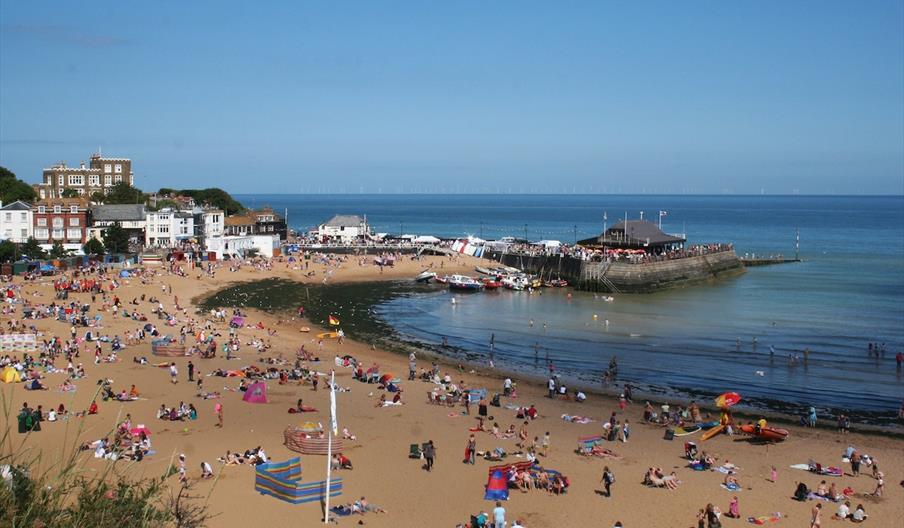
About
Summary
Thanet’s Destination Management Plan identified the beaches as the primary asset that the District has in its visitor offer and its priorities included the aim to improve the day-to-day management of beaches and encourage new activities.
The production of a Beach Management Plan was a key recommendation of the Destination Management Plan and it needed to address these key issues:
- Beaches are one of Thanet’s key tourism assets and a valuable resource for local people
- Thanet needs to attract new visitor markets to boost the economy, but are the beaches the draw they could be?
- Do the beaches match the ambitious proposals for town renewal and re-invention?
The Beach Management Plan reviewed the existing situation including producing detailed audits for each of Thanet’s 17 beaches. It then looked at opportunities for improved management and development at each beach to make the visitor offer exceptional and meet the expectations of the new audiences that were starting to visit Thanet.
Our Approach
We consulted with a number of agencies and organisations involved in beach management and the future of their communities and discussed development and management options in workshops with:
- Thanet District Council Officers involved in beach management
- The Beach Project group
- Invitees from the wider tourism and local community
We also held one-to-one consultations with representatives from Broadstairs and St Peters Town Council, Ramsgate Town Council, the St Mildred’s Bay Association, Westgate and Westbrook Residents Association and Minnis Baywatch.
We produced detailed audits of each beach which provided a compendium of information about the services, facilities and condition; their environmental, planning, coastal defence and water quality status; and the management issues affecting the beach. This included a broad assessment of the costs and income generated from the running of the beaches.
Outcome
The Beach Management Plan made the case for beach improvement, co-ordination of beach management and maintenance, agreed priorities for improvement works, focused scarce resources on agreed priorities, identify new development opportunities including contemporary beachside accommodation and external funding opportunities. The alternative management models explore included:
- Community Model: where a local community group forms a company to manage their local beach in partnership with the District Council
- Co-operative Model: where businesses based at a beach combine in one company to take on the management of their beach
- Private Sector Model: where responsibility for beach management is let on a tender to a private sector company.
Directions
Projects Nearby
An online toolkit for businesses to understand what simple steps they could take to…
A face to face visitor survey, social media listening and secondary research was required…
A Vision for Kent's Coast was developed, within a wider strategy for Kent's coast,…
An audit and analysis of the signage and potential development assets along the Kent…
Reculver Country Park needed a Masterplan to rejuvenate the once thriving destination.…
Dover District Council needed a tourism signage audit for the town. Each sign was…
Visitor survey to determine the future potential of sustainable tourism in the Downs and…
The Destination Management Plan for Shepway is based on extensive stakeholder…
Osea Island is a privately-owned island in the River Blackwater in Essex. Acorn was…
There are a large number of World War I and II sites in Northern France, some of which…
Review of the tourism information centre network in Kent with the aim of making…
Visit Kent and Visit Essex needed to determine the unique identity and core values of…
This study assisted the Camber Visitor Management Initiative to develop a business plan…
Study to investigate the feasibility of developing the Strand Car Park in Rye, which has…
The National Trust required interpretation and development options for nine properties in…
A review of tourism in the High Weald Area of Outstanding Natural Beauty was undertaken…


.png)





